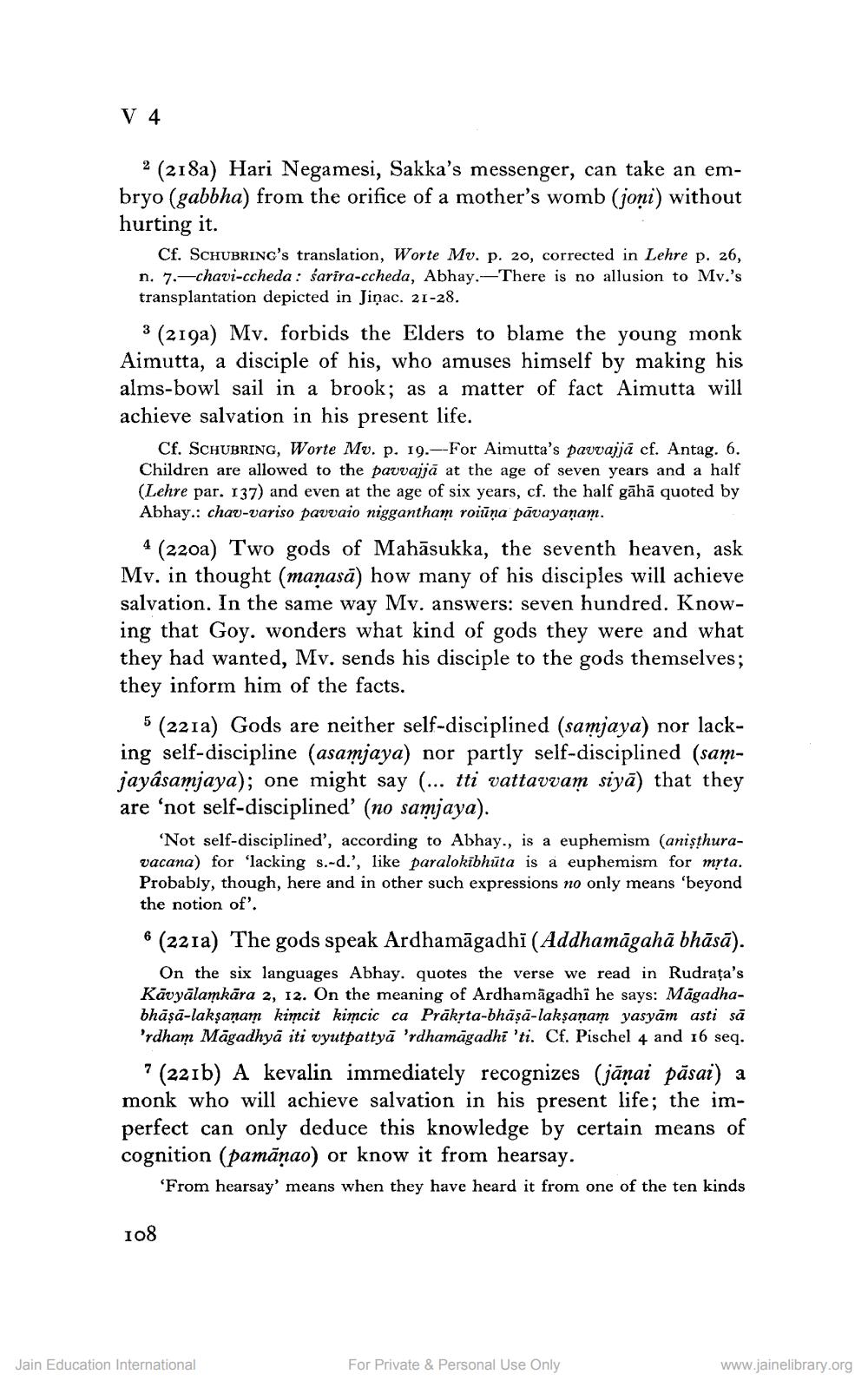________________
V 4
? (2182) Hari Negamesi, Sakka's messenger, can take an embryo (gabbha) from the orifice of a mother's womb (joni) without hurting it.
Cf. SCHUBRING's translation, Worte Mv. p. 20, corrected in Lehre p. 26, n. 7.-chavi-ccheda : sarira-ccheda, Abhay. There is no allusion to Mv.'s transplantation depicted in Jiņac. 21-28.
3 (2190) Mv. forbids the Elders to blame the young monk Aimutta, a disciple of his, who amuses himself by making his alms-bowl sail in a brook; as a matter of fact Aimutta will achieve salvation in his present life.
Cf. SCHUBRING, Worte Mv. p. 19.--For Aimutta's pavvajjā cf. Antag. 6. Children are allowed to the pavvajjā at the age of seven years and a half (Lehre par. 137) and even at the age of six years, cf. the half gāhā quoted by Abhay.: chav-variso pavvaio niggantham roiūna pāvayanam.
4 (220a) Two gods of Mahāsukka, the seventh heaven, ask Mv. in thought (manasā) how many of his disciples will achieve salvation. In the same way Mv. answers: seven hundred. Knowing that Goy. wonders what kind of gods they were and what they had wanted, Mv. sends his disciple to the gods themselves; they inform him of the facts.
5 (2212) Gods are neither self-disciplined (samjaya) nor lacking self-discipline (asamjaya) nor partly self-disciplined (samjayasamjaya); one might say (... tti vattavvam siyā) that they are ‘not self-disciplined' (no samjaya).
'Not self-disciplined', according to Abhay., is a euphemism (anişthuravacana) for 'lacking s.-d.', like paralokābhūta is a euphemism for myta. Probably, though, here and in other such expressions no only means 'beyond the notion of'. 6 (221a) The gods speak Ardhamāgadhi (Addhamāgahā bhāsā).
On the six languages Abhay. quotes the verse we read in Rudrata's Kāvyālamkāra 2, 12. On the meaning of Ardhamāgadhi he says: Māgadhabhāṣā-laksanam kimcit kimcic ca Prāksta-bhāṣā-laksanam yasyām asti sā 'rdham Māgadhyā iti vyutpattyā 'rdhamāgadhi 'ti. Cf. Pischel 4 and 16 seq.
? (221b) A kevalin immediately recognizes (jāņai păsai) a monk who will achieve salvation in his present life; the imperfect can only deduce this knowledge by certain means of cognition (pamāṇao) or know it from hearsay.
'From hearsay' means when they have heard it from one of the ten kinds
108
Jain Education International
For Private & Personal Use Only
www.jainelibrary.org




